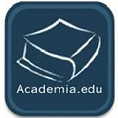Aligning HR Innovation with Industry Strategies: Enhancing Technical Graduate Employability through Industry-Institute Engagement Practices
DOI:
https://doi.org/10.48001/jbmis.1101006Keywords:
industries, employability, technical graduates, strategic approches, industry institute engagement, effectiveness, skilled technical graudates, competitiveness, skillsAbstract
This study aims to investigate the strategic approaches utilized by industries to enhance the employability of graduates through industry-institute engagement practices, seeking to understand the effectiveness
of these strategies in addressing the increasing demand for skilled technical graduates with high competitiveness and employability skills. Employing a cross-sectional research design, the study was conducted in the Peenya Industrial area from December 2022 to March 2023, focusing on its high concentration of engineering industries. A quantitative approach was used to survey 120 executives from Peenya involved in recruiting engineering graduates, utilizing a structured questionnaire to assess strategies like placement cell activities, social media use, and entrepreneurial training. Data analysis involved descriptive
statistics and ANOVA.
Results indicates that placement cell activities are the most employed strategy (63.3%), followed by social
media (21.7%) and college databases (11.7%), with entrepreneurial training and Centers of Excellence
being less utilized. While age did not significantly affect perceptions, firm size did, particularly regarding
entrepreneurial training effectiveness. The study highlights the increasing demand for skilled technical
graduates and the challenges in ensuring their readiness for employment, emphasizing the predominant
use of placement cell activities, social media, and college databases in recruiting engineering graduates.
It underscores the need for aligning HR innovation with industry strategies and collaborative efforts to
enhance technical graduate employability
References
Ananthanarayanan, P., Chellamuthu, M., & Gnanappa, B. (2014). Institute-industry collaboration in higher engineering educational institutions. Proceedings of 2014 International Conference on Interactive Collaborative Learning, ICL 2014, 197–202. https://doi.org/10.1109/ICL.2014.7017770
Anilkumar, N., Jyoti, B., Kuashik, M., & Shirol, S. (2015). Industry-Institute Interaction : An Important Step towards Empowering Skills of Engineering Students. Journal of Engineering Education Transformations, 29(1), 103. https://doi.org/10.16920/jeet/2015/v29i1/77143
Brittne, M. (2021). Social Media Usage; Employment; Higher Education. Dissertation Abstracts International Section A: Humanities and Social Sciences, 82(3-A).
Gandhi, M. M. (2014). Industry-academia collaboration in India: Recent initiatives, issues, challenges, opportunities and strategies. The Business & Management Review, 5(2), 11–12.
Jain, R., Kaur, A., Kaur, A., & Mittal, P. (2023). A Co-occurrence Network Analysis of research work in supply chain finance and corporate sustainable strategy in Industrial sector. International Journal of Experimental Research and Review, 32, 378–386. https://doi.org/10.52756/ijerr.2023.v32.033
Mittal, P., & Raghuvaran, S. (2021). Entrepreneurship education and employability skills: the mediating role of e-learning courses. Entrepreneurship Education, 4(2), 153–167. https://doi.org/10.1007/s41959-021-00048-6
Okrffglicka, M., Mittal, P., & Navickas, V. (2023). Exploring the Mechanisms Linking Perceived Organizational, support, Autonomy, Risk Taking, Competitive Aggressiveness and Corporate Sustainability: The Mediating Role of Innovativeness. Sustainability (Switzerland), 15(7), 5648.https://doi.org/10.3390/su15075648
Padma, M. C., & Sridhar, V. (2015). Role of Industry-Institute Interaction to Promote Education and Entrepreneurship. In R. Natarajan (Ed.), Proceedings of the international conference on transformations in engineering education (pp. 595–596). Springer, New Delhi. https://doi.org/10.1007/978-81-322-1931-6_83
Pheko, M. M., & Molefhe, K. (2017). Addressing employability challenges: a framework for improving the employability of graduates in Botswana. International Journal of Adolescence and Youth, 22(4), 455–469. https://doi.org/10.1080/02673843.2016.1234401
Revana, G., Ramakrishna, K., & Madhav, G. V. (2014). Increasing importance of industry-institute interaction in engineering education in India. Proceedings of 2014 International Conference on Interactive Collaborative Learning, ICL 2014, 779–784. https://doi.org/10.1109/ICL.2014.7017871
Saito, E., & Pham, T. (2021). A comparative institutional analysis on strategies deployed by Australian and Japanese universities to prepare students for employment. Higher Education Research and Development, 40(5), 1085–1099. https://doi.org/10.1080/07294360.2020.1800596
Schwieger, D., & Ladwig, C. (2018). Reaching and Retaining the Next Generation: Adapting to the Expectations of Gen Z in the Classroom. Information Systems Education Journal (ISEDJ), 16(3), 16.
Smith, V. (2010). Review article: Enhancing employability: Human, cultural, and social capital in an era of turbulent unpredictability. Human Relations, 63(2), 279–300. https://doi.org/10.1177/0018726709353639
Downloads
Published
How to Cite
Issue
Section
License
The copyright in this website and the material on this website (including without limitation the text, computer code, artwork, photographs, images, music, audio material, video material and audio-visual material on this website) is owned by QTanalytics India (Publications) and its licensors.










 qtanalyticsindia@gmail.com | Phone: +91-9458270556 | URL:
qtanalyticsindia@gmail.com | Phone: +91-9458270556 | URL: 
